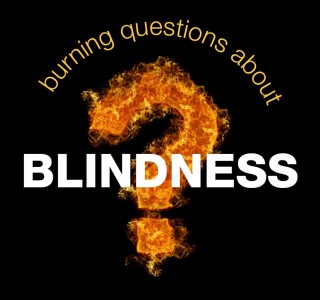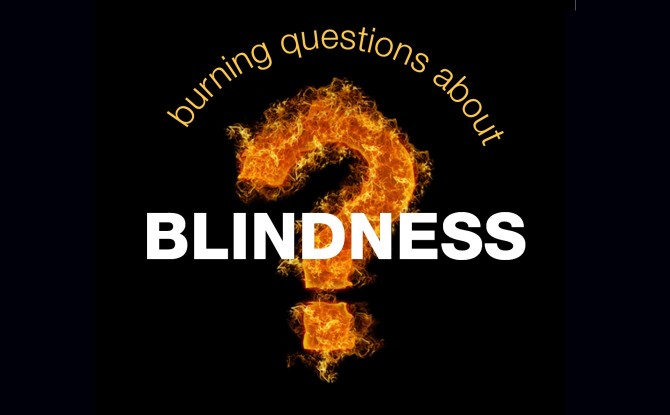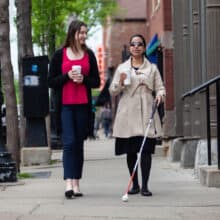
Top 5 Burning Questions about Blindness
August 11, 2016
Most people have never met, let alone interacted, with someone who is blind. Naturally, they have many questions, both about blindness and visual impairment and how we go about our daily lives. Those of us who are blind often get questions from curious individuals who have always wondered about what it is like to be blind. Below are five of the most frequent questions we get.
- Do people who are blind or visually impaired have stronger senses?
Most people find it amazing to see someone who is blind or severely visually impaired crossing streets, being able to tell different noises apart and so on. This can only mean that after we lost our sight, our other senses improved. Actually, there is no research or proof that our senses of hearing, taste, smell or touch are physiologically stronger. Without being able to see, we have to rely on them to do just about everything. Simply put, we have to pay more attention and use our remaining four senses a little more than everyone else.
- Can people who are blind see in their dreams?
This really depends on each person, and when they became blind. People who were born without sight or – like me – lost it early on – do not have any type of visual images in our dreams. Still, we are able to feel, taste, smell and even hear things in our dreams. People who lost their sight later on in life still have visual images in their dreams, even years after the vision loss. Interestingly enough, a recent study showed that people who are totally blind are four times more likely to have nightmares than people with sight.
- What do guide dogs do?
A guide dog is specially trained to safely guide someone who is blind or visually impaired. The handler tells the dog where to go by giving him directions (such as forward, left and right), and the dog leads the person. Guide dogs are allowed in all public places in the United States. This list of frequently asked questions about guide dogs gives more information on what these animals do.
- Do all people who are blind read Braille?
Only 10 percent of people who are blind have absolutely no vision, and the remaining 90 percent are able to see at least some print. Even among people with no vision, only 10 percent read and write Braille. Most people use audio or large print to read print materials. Adaptive technology like screen readers, magnifying software and many other devices have made it much easier for people with vision loss to access print materials.
- How long does it take to learn Braille? Learn to travel with a cane or dog guide? Use computers?
Again, this really depends on each person. Everyone learns at a different pace and style, and training can take from a few months to years. Learning things like Braille or assistive technology might be easier for someone who has been blind all or most of their life, while people who lose their vision later on may have more difficulties. Having information and resources as well as maintaining a positive attitude and being persistent are keys to overcoming challenges!
What other questions do you have about living with blindness or visual impairment? Please share and we will answer them in future posts!





